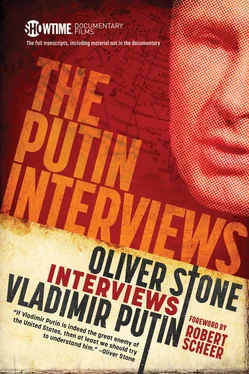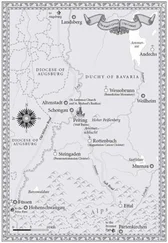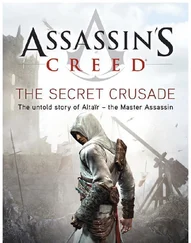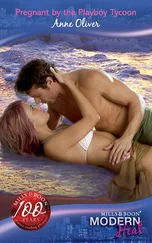OS:The French war was as bloody as the Russian war. In World War I, one-half, 50 percent of the population of young men between 17 and about 35 were killed or wounded in that war. [2] Background Information: The actual number of casualties relative to the number of men mobilised during World War I is appalling. Total number for the Allies was 52%. The total for the Central Powers was 67%. See, “First World War Causalties,” Chris Trueman The History Learning Site (April 17, 2015). Retrieved at: http://www.historylearningsite.co.uk/world-war-one/world-war-one-and-casualties/first-world-war-casualties/ The numbers on Trueman’s site are supported by those found on the International Encylopedia of the First World War . See, “War Losses,” Antoine Prost (October 8, 2014). Retrieved at: http://encyclopedia.1914-1918-online.net/article/war_losses
VP:Yes, that’s true.
OS:You graduated from high school and I believe you went directly to law school. That’s the Russian system?
VP:Yes, that’s true. I graduated from high school, secondary school, in Leningrad and I directly entered Leningrad University and started to study law.
OS:And graduated in 1975? That’s pretty good—as a lawyer and met your first wife there—I mean your last wife—your only wife.
VP:That was later. That was after seven years.
OS:And then you joined the KGB right away in 1975 in Leningrad.
VP:Yes, as a matter of fact, there was this system of distribution of jobs in the Soviet higher education institutions. So when you graduated from a higher education institution, you were supposed to go where you were sent.
OS:Oh, so you had no choice?
VP:Well, I’m going to tell you. So I was taken right away—by job distribution I was obliged to go there—but I also wanted to. Moreover, I entered law school because I wanted to work for the KGB. And still when I was a pupil at school I went to the KGB office in Leningrad by myself. And I asked them what I had to do in order to work for the KGB. And the worker there told me that I had to have a higher education and better legal education. And that’s why I entered law school.
OS:Oh, I see.
VP:But you know, since that moment no one remembered me of course, and I hadn’t had any contact with the KGB. And when the time came for the distribution, it was quite unexpected that the KGB found me and offered a job.
OS:And you had romanticized, of course, the Soviet films about the KGB and intelligence work.
VP:Indeed. That’s exactly the case.
OS:Their names were Tikhonov and Georgy… Starring Tikhonov and Georgy… Movie actors.
VP:There were books, there were films. That’s quite correct—you formulated it quite aptly.
OS:Yeah. And you went to Dresden from 1985 through 1990, but for the first 10 years you were mostly in Leningrad?
VP:Yes. Exactly. In Leningrad and also in Moscow at special schools.
OS:And you were rising, you were doing very well.
VP:Yes. On the whole, yes.
OS:East Germany from 1985 to 1990 was pretty dismal.
VP:Well, not exactly dismal. Back then, in the Soviet Union, there were these processes which were related to Perestroika . [3] Background Information: Perestroika , was, in the words of the Library of Congress, “Mikhail Gorbachev’s program [starting 1986] of economic, political, and social restructuring, [which] became the unintended catalyst for dismantling” the Soviet state. “Revelations from the Soviet Archive,” Library of Congress, retrieved at: https://www.loc.gov/exhibits/archives/pere.html
Well I don’t think we’re going to elaborate on that—there were many issues related to Perestroika but there was still this vein—this spirit of innovation. And when I came to Eastern Germany, to the Republic, I saw no spirit of innovation at all.
OS:That’s what I meant.
VP:And I had this impression that society was frozen in the 1950s.
OS:So Gorbachev—you didn’t know him, I mean, you didn’t really have… A sense of reform was going on but you were not in Moscow to feel it. It was a strange time. Did you go back to Moscow? Did you experience Perestroika ?
VP:You know, it was quite understandable to Gorbachev and to his entourage that the country needed changes. Today I can say with all confidence that they didn’t understand what those changes were and how to achieve them.
OS:Right.
VP:And that’s why they did many things which dealt great damage to the country. Even though they were reacting for the sake of good and they were right to think that changes were required.
OS:But Gorbachev—I met him several times—he came to the United States and I also met him here. But he has a resemblance to you in the sense that he came up through that system. Very much humble beginnings. He was an expert in agriculture. He studied the documents, he worked very hard and he seemed to recognize early, in his memoir, that there were many difficulties that would not work in the economy. Things were not working.
VP:We all have something in common because we’re human beings.
OS:Yeah, but what I’m saying is that he was a worker. He was specific and he was asking questions—how do we fix this?
VP:I was not a worker and I think it is exactly this specificity, this concreteness, which many of the former Soviet leadership were lacking. Gorbachev included. They didn’t know what they wanted or know how to achieve what was required.
OS:Okay. But there was a coup d’état in 1991 in August, [4] Background Information: The August coup of 1991 was a short-lived plot hatched by what the West referred to as “hard-line” Communists who made a last-ditch effort to save the Soviet Union in the face of the chaotic situation brought about by Gorbachev’s Perestroika . The coup was short, lasting only a few days, and most famously involved the kidnapping of Gorbachev and the attempt to reinstate Communist control over the Soviet Union. The plot backfired miserably, making a hero out of Boris Yeltsin who openly led protests against the coup, hastening the collapse of the USSR. See, “The KGB’s Bathhouse Plot,” VICTOR SEBESTYEN, the New York Times (Aug. 20, 2011). Retrieved at: http://www.nytimes.com/2011/08/21/opinion/sunday/the-soviet-coup-that-failed.html
and you resigned on the second day of the coup. The coup being from the Communist Party.
VP:Yes, there was an attempt at a coup d’état. And back in those days—I don’t remember if it was the second day or the third day—indeed I resigned. Because when I returned from Germany I worked at the university for some time. And I was still an officer of the KGB—external intelligence service. And afterwards the former mayor of St. Petersburg, Mr. Sobchak, offered me a job. [5] Background Information: According to the New York Times , “Anatoly A. Sobchak, the former mayor of St. Petersburg and democratic reformer… gave Acting President Vladimir V. Putin his start in public life.” It was Sobchak who, as mayor, renamed Leningrad to St. Petersburg after the August, 1991 coup. “A.A. Sobchak, Dead at 62; Mentor to Putin,” Celestine Bohlen, Feb. 21, 2000. Retrieved at: http://www.nytimes.com/2000/02/21/world/aa-sobchak-dead-at-62-mentor-to-putin.html
And that was quite a curious conversation because I used to be his pupil and he invited me into his cabinet.
Читать дальше












